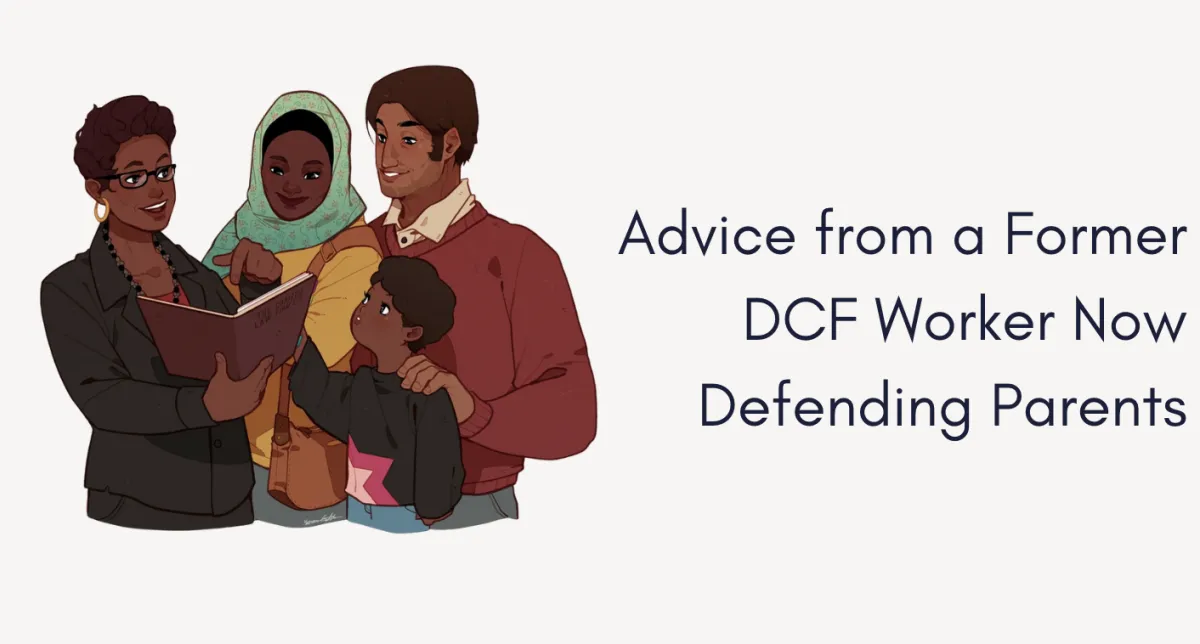
From the Inside Out: Advice from a Former DCF Worker Now Defending Parents
I’ve Sat on Both Sides of the Table
Before I became a Connecticut DCF defense attorney, I worked inside the Department of Children and Families (DCF). I’ve seen firsthand how investigations begin, how decisions are made, and how quickly parents can feel overwhelmed once DCF is involved.
Now, I use that insider knowledge—and years of juvenile court experience—to help parents protect their rights and keep their families together. If DCF has contacted you, know this: you are not powerless, and you have options.
Why DCF Gets Involved in Connecticut
Most cases start because a mandated reporter—like a teacher, doctor, or neighbor—calls DCF when they believe a child might be at risk (Conn. Gen. Stat. § 17a-101). The most common reasons include:
Repeated school absences or chronic tardiness
Domestic disputes or violence in the home
Substance abuse or untreated mental health concerns
Unsafe or unsanitary home conditions
Missed or delayed medical care
A call to DCF does not mean you are a bad parent—it means someone has raised a concern. How you respond to the investigation is what matters most.
What Happens During a DCF Investigation
From my time at DCF, I know the first step is usually anunannounced home visit. Investigators are trained to:
Interview parents and children (sometimes separately, even at school)
Inspect the home for safety and basic needs
Contact teachers, doctors, and other providers
Decide if immediate safety action is necessary
At the end of the process, DCF either:
Unsubstantiates the report(no neglect or abuse found; case closed), or
Substantiates the report(concerns remain; services or court involvement may follow).
Parents should remember: you have the right to understand what is being investigated and to consult with a lawyer before signingany agreement or safety plan(see DCF Policy Manual v.12, Investigations).
The Biggest Mistakes Parents Make
Over the years, I’ve seen parents make the same mistakes during investigations. The most common are:
Panicking and refusing to cooperate– shutting the door often makes things worse.
Signing documents without legal advice– safety plans and service agreements can affect custody and parental rights.
Failing to document their side of the story– keeping notes, photos, and proof of safe conditions matters.
Waiting too long to call a lawyer– early legal help gives you more control over the outcome.
When DCF Files a Neglect Petition
If DCF believes a child isn’t safe, they may file a Neglect Petition in Connecticut juvenile court (Conn. Gen. Stat. § 46b-129). At the first hearing, the judge decides whether your child:
Remains home with you,
Goes to a relative, or
Is placed elsewhere temporarily.
What you bring to that first court date matters—your lawyer’s arguments, your proof of home safety, and your cooperation with reasonable steps can all make a difference in keeping your child with you.
Why a Former DCF Worker Makes a Strong Defense Attorney
Because I’ve worked inside the system, I understand:
How investigators are trained and what details matter most
When a case is likely to escalate to court—and how to act before it does
Which services DCF may propose and how to negotiate terms that actually help families
That knowledge gives my clients an advantage when facing one of the most stressful experiences a parent can go through.
Conclusion: You Are Not Powerless
When DCF knocks on your door, it can feel like your family’s future is already out of your hands. But you still have rights, choices, and the ability to protect your child.
I know this because I’ve been on the inside—and now I fight for parents every day. With the right legal guidance and preparation, you can face the DCF process with confidence and protect what matters most: your children.
Contact a Connecticut DCF Defense Lawyer Today
At The Christie Law Firm, we focus on helping parents navigate DCF investigations, neglect petitions, and court involvement. If DCF has contacted you, don’t wait—call us today for a confidential consultation. (860) 461 7494
Hartford | New Haven | Bridgeport | Stamford | Statewide Virtual Appointments

Ph: 860.461.7494
Fax: 860-461-7003
All information displayed on the The Christie Law Firm website is informational and shall not be deemed as legal advice.
If you’re currently dealing with an individual legal situation, you’re invited to contact us through email, phone, or form.
Until an attorney-client relationship has been established, we urge that you avoid sharing any confidential information.
© 2023 The Christie Law Firm, LLC All rights reserved
Family Focused & Child Centered™️
Illustrations by: Kuresse Bolds
Website Powered by Shaggy Digital


